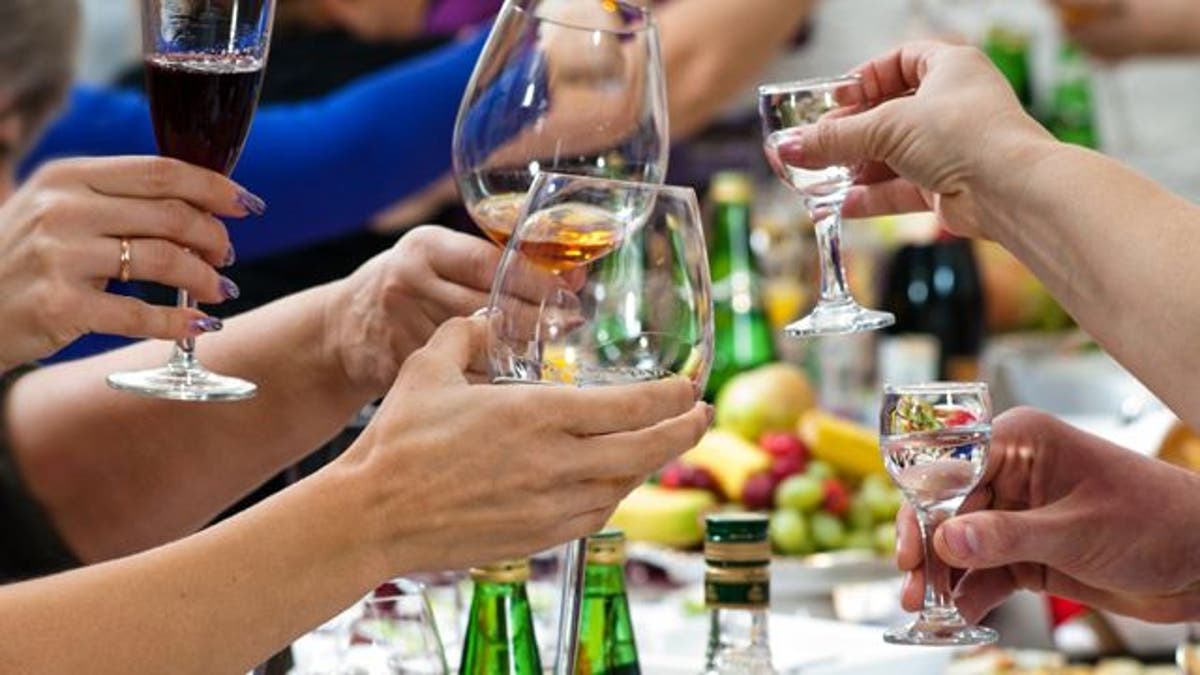
Older adults who binge drink at least once a month may be setting themselves up for an earlier grave, a new study suggests.
Researchers found that men and women in their mid-50s to mid-60s who engaged in binge drinking even when their total number of weekly drinks was considered moderate had an increased risk of dying over a 20-year period compared with regular, moderate drinkers.
"This is one of the first studies to focus explicitly on an older population in examining binge drinking among, on average, moderate drinkers," said study author Charles Holahan, a professor of psychology at The University of Texas at Austin.
In the study, Holahan and his colleagues tracked the drinking behavior of 443 older people ages 55 to 65 at the study's start. Participants were all considered moderate drinkers, meaning their average daily alcohol consumption was at least one-half a drink a day during the past month.
The researchers then compared the death rate in older adults who reported they were binge drinkers to that of regular moderate drinkers during a 20-year follow-up period. They also took into account factors such as marital status, smoking, income, depression symptoms and medical conditions, which could all influence the results. [7 Ways Alcohol Affects Your Health]
The findings are published online March 3 and will appear in the May online-only issue of the journal Alcoholism: Clinical & Experimental Research.
Shorter lives
Binge drinking is defined as downing at least four drinks for women or five drinks for men in about two hours, a drinking pattern that can bring a person's blood alcohol concentration to at least .08 grams of alcohol per deciliter of blood.
The research found that among older people with modest alcohol intakes, those who binge drank were more than twice as likely to die over the next 20 years compared with men and women who consumed alcohol in a regular, moderate pattern.
Put simply, binge drinkers didn't live as long. By the end of the 20-year period, 61 percent of the binge drinkers and 37 percent of regular moderate drinkers had died.
"Binge drinking is bad at any age," Holahan said.
An episode of heavy drinking concentrates alcohol's toxicity, and is linked to mortality because it damages body organs and increases the risk of accidents, he explained.
While binge drinking occurs more commonly in adolescents and young adults, its frequency is often overlooked among middle-aged and older adults, Holahan told LiveScience.
In other words, people who are middle aged and older will find it harder to party like they did when they were younger, and a weekend bender of beer, wine or booze can take its toll.
Risky drinking
The findings show it's not just the number of drinks that matters; the pattern of drinking also has health consequences as a person gets older, the researchers said.
Older bodies and minds are not as well equipped to handle heavy drinking episodes.
"Binge drinking is increasingly being recognized as a significant public health concern," Holahan said. And binge drinking is "a bigger problem than previously thought," according to the Centers for Disease Control and Prevention.
Drinking too much in one sitting is linked with a host of health problems, from car crashes and falls to domestic violence and risky sexual behavior.
But binge drinking may be particularly risky for older adults because they are more likely to have age-related illnesses, and they also take more medications that could cause side effects when combined with alcohol, Holahan said.
Copyright 2014 LiveScience, a TechMediaNetwork company. All rights reserved. This material may not be published, broadcast, rewritten or redistributed.
